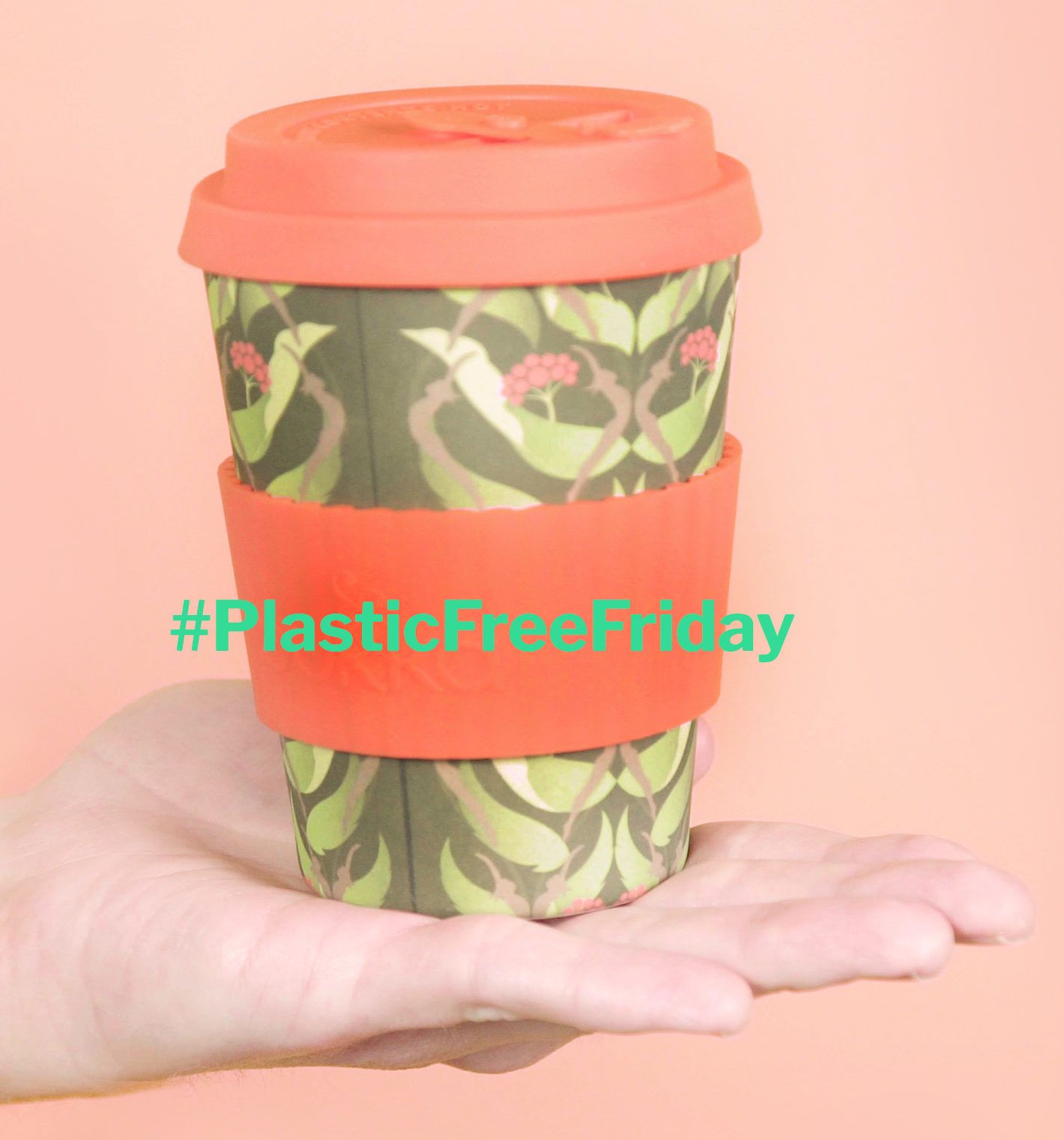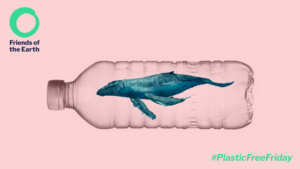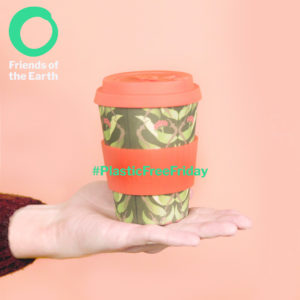
10 tips for Plastic Free Fridays
It may seem a little daunting to cut out plastic as it is so common in our lifestyles. But don’t worry, you don’t have to get it 100% right the first time. With a little planning and commitment to keep trying you’ll soon be making progress.
A key part of the journey to cut down on plastics is noticing the prevalence of it in your life. Make a couple of the easier changes first to help give you that sense of satisfaction and build confidence that you can cut down. Then you can work up to the more complex changes that suit your personal circumstances.
Here are a few tips to help you identify single-use plastics in your everyday life and how you can leave them behind.
1. Get a refillable water bottle
The easiest one first. If you know you get thirsty whilst on the move, dig out that reusable water bottle and bring it with you. Don’t be buying bottled water or fizzy drinks – it’ll save you a few quid and is probably better for your health too.

2. Bring your own lunch to work.
Avoid sad sandwiches wrapped in plastic-covered cardboard. Just make an extra portion when making your dinner the previous night and bring that in with you. Again this might even save a few pounds. You can also bring some fruit or snacks into work rather than nipping out to shop for crisps and chocolate to battle the afternoon sugar slump.
3. Bring a reusable coffee cup with you.
The UK gets through 2.5 billion coffee cups a year, the vast majority of which aren’t recyclable. Many coffee shops are happy to see people using their own cup and some will even offer a discount to people, making that caffeine hit a little cheaper. There are plenty of good value, good looking and eco-friendly options out there. (Set the cup beside your house-keys so you remember to lift it in the morning.)

4. Don’t clean yourself with polluting products.
Loads of well known scrubs, lotions and shower gels contain tiny microbeads which go down the drain and end up in our marine environment. The UK Government will ban the sale of these “rinse-off” products containing microbeads from July 2018. But lots of “leave-on” products such as cosmetics, lipstick and sun-cream will still be on sale. Think about whether to buy a different brand and ensure that you aren’t washing them off down the plughole.
5. Cut your waste in the supermarket.
Choose fruit and veg that isn’t smothered in plastics. Bring your own bags or containers to the shop. This could be reusing bags from the last trip or heading to a wholefood store like Real Foods, who sell loose fresh fruit and vegetables, bulk produce and are happy for you to bring your own containers for refills. Or New Leaf Co-op in Edinburgh, where customers are encouraged to bring their own packaging, and even get a wee discount for each 500g+ purchase when they do. Lots of towns have farmer’s markets or veg-box delivery schemes which can be more accommodating than chain supermarkets. Plus the money is more likely to stay in the local community
Find a Food Box provider Farmers’ Markets in Scotland
6. Make your own dinner.
Ready-meals and other convenience foods normally come wrapped in plastic or with that weird film you poke holes in before bunging it in microwave. If you can, make time to cook something from scratch. It doesn’t have to be like Masterchef every evening – even simple dishes will be tastier, healthier and feel much more rewarding. Check out these great Five ingredient recipes
7. Nae Straw at Aw.
If you can manage your drink without a plastic straw, then say no thanks if offered one. The Scottish Government aims to ban them from 2019 so you’ll have to get used to seeing less of them around.

8.Get your dog in on the act.
Pick up dog poo using old newspaper, or if you’re out walking use compostable dog waste bags. A quick Google will bring you loads of biodegradable plastic dog waste bags.
9. Buy second hand.
New products whether they are electronic equipment, clothes or DVDs often come sealed or packed in plastic. Buying pre-loved items in charity shops will mean a little less plastic, less demand on valuable resources, save you some pennies and your money goes to a good cause.
10. Do a plastic free activity.
Read a book, get crafty with the kids or go for a run. You’ve hopefully made good progress – make sure to relax and unwind.
More fantastic plastic-free tips submitted by our supporters:
(Share any of your own tips in the comments section below)
Submitted by Karen:
Get your milk in glass bottles.
Does your family use a lot of milk? Call the milk man and get your milk delivered in glass bottles. Even saves you a trip to the store.
Use beeswax and silicone for food storage.
Submitted by Alice:
Embrace the soap bar.
Natural soap bars are cheap, cruelty-free, effective, free of dodgy ingredients, and producing them requires less energy than liquid shampoo or shower gel. Weight for weight you get more use out of soap bars too. There are soap bars for every use and every skin type!
Replace squeezing with scooping.
Submitted by Katie:
BYOB.
Remember to bring your own re-usable bag when you are out. You’ll also save money by avoiding the plastic bag charge.
Avoid synthetic fabrics.
Choose natural fibers over synthetics to avoid microfibers. Synthetic fabrics like polyester release microplastics with every wash which end up in rivers and oceans, as well as in the water we drink. A recent study revealed that 83% of tap water samples gathered from around the world contained plastic fibres!
Sign up to the PlasticFreeFriday pledge today and get going.
*******
With thanks to Friends of the Earth England, Wales & Northern Ireland for use of their images
